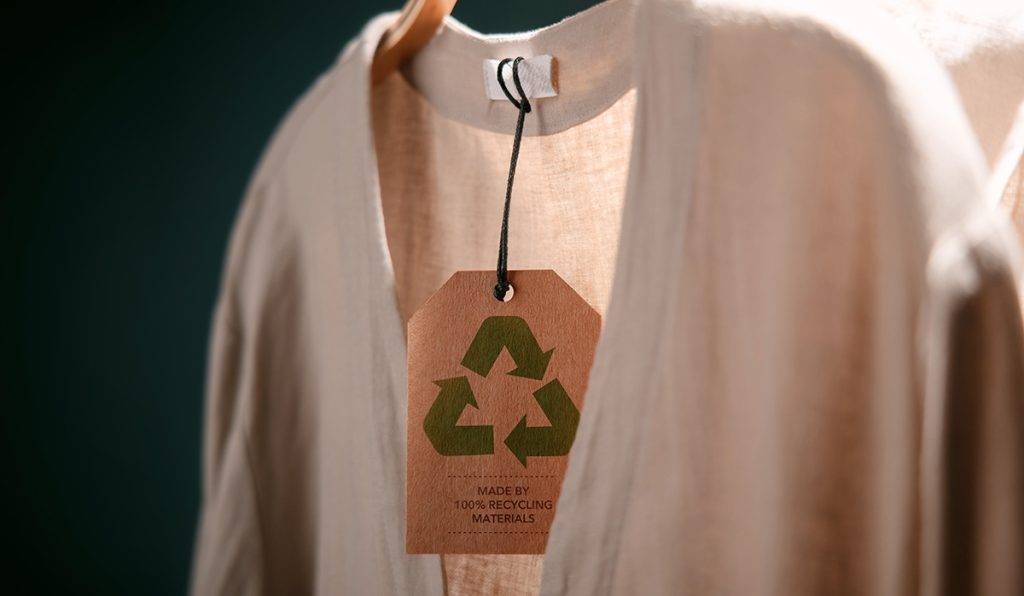In this era of heightened environmental consciousness, the constant beat of change echoes through the air, inspiring a shift toward sustainability. As the fashion industry stands at the crossroads of transformation, apparel vendors like Pearl Global Industries emerge as radiant beacons, illuminating the way forward in responsible clothing production through sustainable clothing.
Current Scenario of Sustainable Clothing Worldwide
- Growing Consciousness: Consumers increasingly recognize the environmental and social impact of fashion, driving demand for sustainable alternatives. Further, the brands are expected to be transparent about their production processes.
- Rise of Sustainable Fashion: Numerous eco-friendly fashion brands are emerging, utilizing organic materials like cotton, hemp, bamboo, and recycled fabrics. These brands prioritize fair trade, ethical labor conditions, and minimal environmental harm.
- Collaborative Initiatives: Collaborations and initiatives promote sustainable clothing. Fashion Revolution encourages consumers to question brands about their supply chains.
- Circular Economy: The fashion industry embraces the concept of a circular economy, aiming to reduce waste and promote recycling and upcycling. Brands introduce take-back programs to facilitate garment recycling.
- Policy and Regulations: Governments implement policies and regulations to foster sustainability in fashion. Some regions ban or restrict harmful chemicals in textile production, while others provide incentives for sustainable practices.
- Persisting Challenges: Fast fashion’s negative aspects like overconsumption and disposable clothing still dominate the market. Widespread adoption of sustainable practices and materials, addressing labor rights, and ensuring fair wages throughout the supply chain remain ongoing challenges.

Benefits of sustainable clothing
Sustainable clothing manufacturers like us reduce environmental impact, improve worker conditions, enhance health outcomes, meet consumer demand, and boost brand reputation. By minimizing resource usage, prioritizing fair labor practices, and using eco-friendly materials, sustainable clothing aligns with growing market trends and promotes a better future. It offers multiple benefits:
A. Environmental Impact
Sustainable clothing production minimizes water, energy, and chemical usage. For instance, organic cotton requires less water and no pesticides compared to conventional cotton. Recycled polyester reduces resource consumption and waste. Furthermore, Hemp and Linen are produced without harmful chemicals and require less water than cotton. Sustainable clothing also uses non-toxic and biodegradable dyes and finishes.
Pearl Global aims to reduce waste and extend garment lifespan, achieved through strategies like designing durable and timeless clothing, using recycled materials, and implementing circular economy practices such as rental and repair services. By prolonging clothing lifespan, less waste is generated, and fewer new garments need to be produced.
B. Improved Worker Conditions
Commitment to fair labor practices throughout the supply chain ensures ethical treatment of workers. We participate in the Better Cotton Initiative, promoting sustainable cotton production and improved working conditions for farmers and workers. Our certification by the Fair Labor Association verifies fair treatment and safe working conditions.
Pearl Global goes beyond certifications by implementing various initiatives that enhance worker welfare. One such initiative is the training and development programs, including language and vocational training, to improve employees’ skills and career prospects.
C. Other Benefits
- Improved health: Sustainable clothing manufacturers contribute to better health outcomes for both workers and consumers. Utilizing eco-friendly materials and minimizing the use of harmful chemicals helps prevent health issues associated with exposure to toxins and pollutants.
- Meeting consumer demand: The demand for sustainable clothing is rising, especially among younger generations. Adopting sustainable manufacturing practices allows companies to tap into this expanding market and attract more customers.
- Improved brand reputation: Prioritizing sustainability in manufacturing practices enhances a company’s brand reputation.
Challenges and limitations
While sustainable clothing manufacturing offers many benefits, there are also several challenges and limitations that companies face.
- Cost: Sustainable clothing manufacturing can be costly compared to traditional methods, which poses a challenge for smaller companies with limited budgets.
- Complex supply chain: The fashion industry’s intricate supply chain involves multiple stakeholders, making it challenging to ensure sustainable practices throughout the process.
- Certification and standardization: The absence of standardized certifications makes it challenging for consumers to identify truly sustainable products in the clothing industry.
- Limited innovation: Sustainable clothing manufacturing often focuses on incremental improvements rather than groundbreaking technological advancements, resulting in limited innovation.
How can Pearl Global help Brands overcome challenges?
The company helps brands overcome the challenges and limitations of sustainable clothing manufacturing in several ways:

- Cost-effective solutions: With expertise in eco-friendly materials and manufacturing processes, Pearl Global provides affordable solutions for sustainable clothing manufacturing. Moreover, we optimize production and supply chain management to help brands reduce costs while maintaining sustainability.
- Sustainable materials sourcing: Pearl Global leverages its global network of suppliers and partnerships to help brands source sustainable materials at scale. By collaborating with brands, we identify the best sustainable materials, addressing the challenge of availability.
- Infrastructure support: Pearl Global has invested in sustainable infrastructure like renewable energy sources and waste management facilities. Brands can leverage these resources to support their sustainable manufacturing practices.
- Supply chain transparency: Pearl Global ensures supply chain transparency, giving brands visibility into every manufacturing stage. Furthermore, it guarantees the implementation of sustainable practices throughout the supply chain.
- Innovation: Pearl Global’s dedicated R&D team focuses on developing new sustainable technologies and materials. Additionally, collaboration with brands addresses the limited innovation challenge in the sustainable clothing industry.
- Certification and standardization: Pearl Global meets global standards and certifications for sustainable clothing manufacturing, such as GOTS and Oeko-Tex. This enables brands to market their products as truly sustainable and ethical.
Pearl Global’s approach to sustainable clothing manufacturing
Pearl Global through several key strategies, emphasizes environmental consciousness, social responsibility, and ethical business conduct.
To ensure sustainability, Pearl Global primarily relies on eco-friendly materials sourced from suppliers known for offering sustainable fabrics like organic cotton and recycled polyester. Additionally, we employ a closed-loop water management system to minimize water waste and pollution.
In addition to using sustainable materials, Pearl Global implements various environment-friendly practices throughout its manufacturing processes. This includes utilizing renewable energy sources and implementing waste reduction measures such as recycling and reusing materials. Pearl Global stands out among sportswear manufacturers and denim manufacturers for its commitment to sustainability and ethical practices.
Pearl Global’s commitment to sustainability, including the initiatives & practices the company has implemented
Pearl Global is dedicated to sustainability through various initiatives and practices. Our company prioritizes eco-friendly materials, collaborating with suppliers that offer sustainable options like organic cotton and recycled polyester. This approach minimizes environmental impact during manufacturing and promotes sustainability across the supply chain.
To conserve water resources and reduce pollution, Pearl Global implements a closed-loop water management system. Water recycling and reusing techniques are employed, ensuring efficient water usage and decreased overall consumption.
Our company has set ambitious targets for greenhouse gas emission reduction. To achieve this, we focus on energy conservation, invest in renewable resources such as solar and wind power, and utilize low-emission transportation methods.

How does Pearl Global work to reduce its environmental impact, such as using eco-friendly materials and implementing energy-efficient processes?
Pearl Global is dedicated to minimizing its environmental impact through various measures. By utilizing eco-friendly materials and implementing energy-efficient processes, the company strives to reduce its negative effects on the environment. One way we achieve this is by collaborating with suppliers who provide sustainably sourced materials, such as organic cotton and recycled polyester. This not only lessens the environmental impact of our manufacturing processes but also promotes sustainability throughout our supply chain. Furthermore, Pearl Global has installed solar panels in its manufacturing units to mitigate greenhouse gas emissions and lessen its carbon footprint. Pearl Global is also one of the leading custom clothing manufacturers, offering sustainable and eco-friendly options to its clients.
Various Categories Of Sustainable Clothing By Pearl Global
Pearl Global offers a wide range of sustainable clothing options organized into several categories that prioritize different aspects of sustainability. These categories include:
- Knits
- Woven
- Denim
- Outerwear
- Sportswear & Athleisure
- Sleepwear & Lounge
- Childrenswear
- Workwear
Brands that trust Pearl Global for sustainable clothing manufacturing:
Pearl Global is a trusted partner for sustainable clothing manufacturing and has worked with several well-known brands that prioritize sustainability and ethical business practices. Some of the brands that trust Pearl Global include:
- Calvin Klein
- ZARA
- Ralph Lauren
- Mango
- Old Navy
How Can Brands Get Service By Pearl Global?
Brands interested in working with Pearl Global for sustainable clothing manufacturing can contact the company through its website or email. A team of experts at the company can guide brands through the whole apparel manufacturing process.
Pearl Global offers a comprehensive range of services, which include:
- Design and Development: With a skilled design and development team, Pearl Global assists brands in creating personalized designs and patterns for their clothing lines.
- Sustainable Material Sourcing: By collaborating with various sustainable material suppliers, Pearl Global helps brands procure eco-friendly fabrics, recycled materials, and other sustainable options for their clothing lines.
- Production and Manufacturing: Pearl Global operates cutting-edge manufacturing facilities staffed by skilled workers who specialize in producing high-quality, sustainable clothing for brands.
- Quality Control and Compliance: Adhering to strict quality control measures, Pearl Global ensures that all clothing produced meets the highest standards of quality and sustainability. Moreover, our company is dedicated to upholding relevant environmental and labor regulations.
- Logistics and Delivery: With its global logistics network, Pearl Global guarantees prompt and efficient delivery of sustainable clothing to brands.
- Licensing: Pearl Unlimited, Inc. Pearl Global’s new strategic business unit launched in January 2023. Pearl Unlimited, Inc. is committed to building and expanding branded businesses in North American markets through licensing brands, leveraging Pearl Global’s significant production capabilities and garment knowledge.
Conclusion
The clothing industry needs to adopt sustainable practices due to its significant environmental impact. Pearl Global Industries leads the way in promoting sustainable clothing production through its commitment to sustainability and innovative manufacturing techniques.
Further, by producing sustainable fabrics and adopting eco-friendly practices, Pearl Global sets an example for others to follow, aligning with the increasing consumer awareness of the impact of their purchases. It signifies a step in the right direction toward a sustainable future.













































